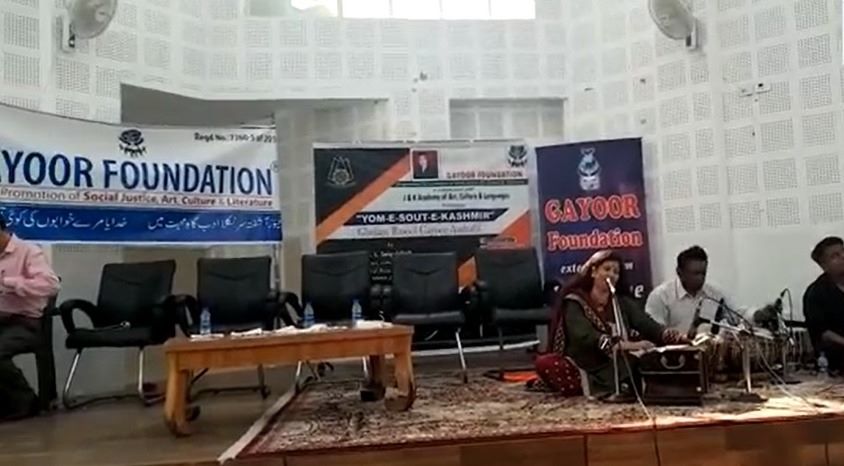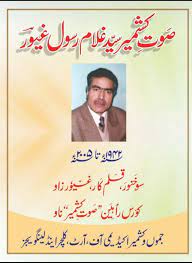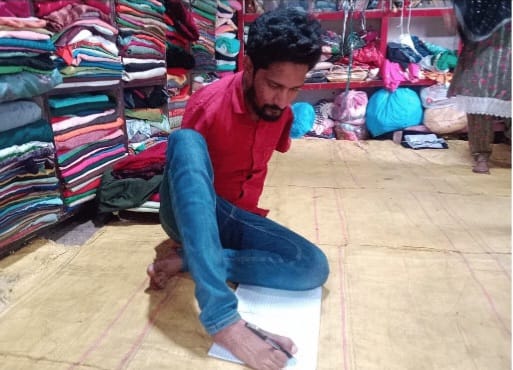
Mission of martyr Ghulam Rasool Gayoor for peaceful Kashmir continues
Dr Shujaat Ali Quadri
Keeping memories of assassinated educationist, philanthropist and political activist Syed Ghulam Rasool Gayoor alive, a foundation named after him is weaving broken pieces into peace in Jammu and Kashmir. The foundation has been working for the last 18 years focusing on generating awareness about productive politics, promotion of arts and building narratives of harmony.
The Gayoor Foundation in collaboration with the Jammu and Kashmir Academy of Art, Culture and Language recently organised an event named “Yom-e-sout-e-Kashmir (Commemoration Day for Voice of Kashmir)” to bring Kashmiri Pandits and Muslims on one platform.
“We organised Yom-e-Sout-e-Kashmir to bring Kashmiri Pandits and Muslims, who were distanced from each other due to the eruption of militancy. We want to restore the compositeness,” Gayoor Foundation chairman Showkat Gayoor Andrabi, his son, said elaborating on the importance of the event.
The focus of the foundation is to bring down walls of mistrust between the two communities, he said.
Writers, artists and poets including P N Trisal, A K Naaz, Darakhshan Andrabi, P N Shaad, Bal Krishen Sansasi, P S Betab and Wali Muhammad Aseer Kishtwari, and singers Qaiser Nizami, Deepali Wattal and Zahida Taranum participated in the event.
The Gayoor Foundation has been working to bridge the gap of understanding among various sections of Kashmiri people as was the vision of late Syed Ghulam Rasool Gayoor who fell to the bullets of militants for the sake of unity of Kashmiris.

Martyr and His Mission
Syed Ghulam Rasool Gayoor was born in Ratnipora, Pulwama district. He established himself as a journalist, activist, author and political worker. Unlike mainstream politicians of the Valley, he made solving the problems of the downtrodden mission of his life. He thought that the impediment in eradicating poverty and social evils in Kashmir is that the Kashmiris are divided along sectarian, communal and political lines and until these lines are blurred, they would continue to suffer.
He was one among the common folk who lived his life in the most modest way, careless of personal benefit or comfort as he couldn’t compromise his conviction with material benefits. This is not only reflected in his prose and poetry but also in the columns of newspapers.
Coming from a religious family of Andrabi Syeds, he had an extensive study of Islam and poets like Jami and Iqbal were often reflected in his poetry.
He is considered to be author of more than thirty books, and they include Kashmiri poetry collection Dael, Urdu prose books like Fikri Zawiye Nathri Khakey, Urdu poetry collection Razm Gahi Hayat, Sung-O-Saman and Shafaq Manzar.
He is particularly known for his passionate naats (poems in praise and memory of Prophet Muhammad). He would always be at the forefront of Eid Milad-un-Nabi programmes in the Valley.
Gayoor, like most devotional poets, placed the sacrifice of Imam Hussain at Karbala very dear to his heart. On 17 Ramadan in 2005, he himself attained martyrdom when evil-begotten militants killed him in his hometown. But, like all martyrs, he continues to live in people’s hearts and his memories serve as inspiration to fight for peace with even more vigour.
(The Authos is Chairman of MSO of India)

